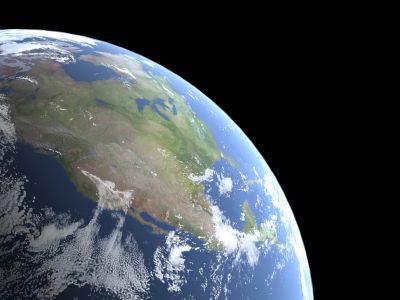US, China under fire on climate: poll

Your support helps us to tell the story
From reproductive rights to climate change to Big Tech, The Independent is on the ground when the story is developing. Whether it's investigating the financials of Elon Musk's pro-Trump PAC or producing our latest documentary, 'The A Word', which shines a light on the American women fighting for reproductive rights, we know how important it is to parse out the facts from the messaging.
At such a critical moment in US history, we need reporters on the ground. Your donation allows us to keep sending journalists to speak to both sides of the story.
The Independent is trusted by Americans across the entire political spectrum. And unlike many other quality news outlets, we choose not to lock Americans out of our reporting and analysis with paywalls. We believe quality journalism should be available to everyone, paid for by those who can afford it.
Your support makes all the difference.The United States and China, the planet's two largest emitters of carbon dioxide, both get low marks around the world for their actions on climate change, a 20-nation poll found Wednesday.
WorldPublicOpinion.org, a global project run at the University of Maryland, found mixed reviews for China and the United States in general from Muslim-majority nations suspicious of Washington and from the West uneasy about China's rise.
The survey was released days before President Barack Obama heads to China, where climate change is set to be a major topic between the two giants as the clock ticks to next month's high-stakes UN-sponsored Copenhagen summit set to hammer out a successor treaty to the Kyoto Protocol.
Only 39 percent of people across the 20 developed and developing nations surveyed approved of US policy on climate change. Thirty-six percent backed China's performance, with the figure dwindling to single digits in some Western nations and Taiwan.
The United States was the only industrialized power to shun the landmark Kyoto Protocol requiring emission cuts, while China has demanded that rich nations do more as part of the next agreement.
More broadly, 44 percent of participants said China played a mainly positive role in the world and 40 percent said the United States played a mainly positive role, a difference largely within the margin of error in some nations polled.
There were strong regional differences. The country that gave China the lowest marks was Germany, where only 21 percent said Beijing played a positive role. China's rating was 26 percent in France, 33 percent in the United States and 40 percent in Britain.
The United States met sharp opposition in Muslim-majority countries, with no more than 16 percent of people in Egypt, Pakistan and Turkey saying that Washington was generally a positive force. Russia also figured in that group.
But the US role won higher marks in Europe, Asia and Africa. In Kenya, where US President Barack Obama's father was born, 81 percent said the United States was generally a force for good - a notch more than even in the United States itself where 80 percent said so.
"There is a division in the world with some Europeans pulling more closely to the US and the Muslim world pulling much closer to China and being quite negative to the US," WorldPublicOpinion.org director Steven Kull told AFP.
"I think that's quite a key division line and it's pretty salient."
He said that negative perceptions of the United States in key areas - such as that Washington uses force to achieve its aims - persisted despite Obama's election a year ago.
With sharp regional divisions, only 50 percent said the United States generally respected human rights, higher than the 36 percent who said the same about China, but a figure that Kull said was surprisingly low for Washington.
He pointed to "residual resentment" against perceived excesses under Obama's predecessor George W. Bush, including the abuse of detainees at Abu Ghraib prison in Iraq and the US naval base detention center at Guantanamo Bay, Cuba.
The poll found the fewest differences in perceptions of the United States and China in sub-Saharan Africa, where the public largely welcomed both powers.
The survey took responses from 20,349 people around the world in person, by telephone or online. The margin of error varied from country to country but ranged from three to four percent.
Join our commenting forum
Join thought-provoking conversations, follow other Independent readers and see their replies
Comments